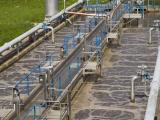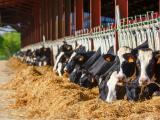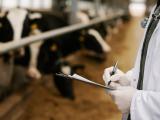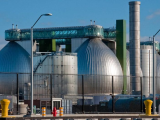Dec 3, 2004 (CIDRAP News) – In announcing his resignation today after 4 years as US Health and Human services (HHS) secretary, Tommy G. Thompson cited pandemic influenza and food biosecurity as two of his biggest worries.
Thompson, who presided over massive increases in federal spending for public health preparedness and biodefense research, said in response to a question, "There are two things that really worry me yet. The big one is pandemic flu."
He cited the widespread concern that H5N1 avian influenza could trigger a human flu pandemic. Noting that the virus has sickened about 40 people in Asia and killed 30 of them (official figures are 44 and 32), he said, "That is huge lethality. No other disease has had that kind of lethality before."
He added that no vaccine is currently available for the virus. HHS researchers are working on a vaccine, but current egg-based vaccine production methods are very slow, Thompson noted. He said he wants to push the development of cell-culture technology for producing flu vaccines.
"I'm putting in the budget this year for $125 million for pandemic flu," he said. "I really consider this a huge bomb out there that could really impact on the health of the world." The World Health Organization has estimated that "30 million to 70 million people could die" in a pandemic, he added. "We made great progress on pandemic flu, but we're not there yet."
Thompson said his second big concern is that terrorists will strike the food supply. "I cannot understand for the life of me why the terrorists have not attacked our food supply, because it's so easy to do, and we're importing a lot of food from the Middle East and it'd be easy to tamper with that," he said.
He said the government has made some progress in food biosecurity: food-import inspections have increased from 12,000 to 98,000 per year, and laws now require businesses to give advance notice of the arrival of food shipments from abroad.
"But it still is a very minute amount that we're doing," Thompson said. "We've got more tools, but those two areas [pandemic flu and food security] need a lot more work."
In his teleconference this afternoon, Thompson said he had told White House Chief of Staff Andrew Card about a year ago that he was thinking of resigning, but Card asked him to stay on for the rest of President Bush's first term. He said he agreed to stay but made it clear he would probably leave after that. Today Thompson said he would stay until Feb 4, 2005, or until his successor is confirmed.
When he was asked what he considered his major achievements at HHS, Thompson cited the rebuilding of the public health infrastructure at the state and federal levels as third on the list. For his top two accomplishments, he cited the overhaul of Medicare, with the prescription drug benefit for seniors, followed by efforts to raise people's awareness of the need for a healthy lifestyle.
Last April HHS officials said that federal spending for public health preparedness and biodefense had increased from $294 million in 2001 to $5.2 billion in fiscal year 2004, a 17-fold jump.
The secretary also mentioned bioterrorism preparedness efforts in his prepared announcement. "From the day I arrived, we spoke of the need to better prepare for bioterrorism, and together we helped this nation weather the first biological attack on its people with the anthrax letters," he said in a reference to the anthrax attacks in the fall of 2001.
"We expanded our cache of smallpox vaccine, so we can now protect every man, woman, and child if this vicious disease were to return," he added. He said the government has stockpiled more than 400 million doses of the vaccine.
In other comments today, Thompson said the nation may need an agency independent of the Food and Drug Administration to monitor the safety of drugs after they are on the market. He also expressed a hope that Congress will consider requiring food supplement manufacturers to demonstrate the safety of their products before they can be sold, instead of putting the burden on government to prove that a product is unsafe before it can be removed from the market.


















